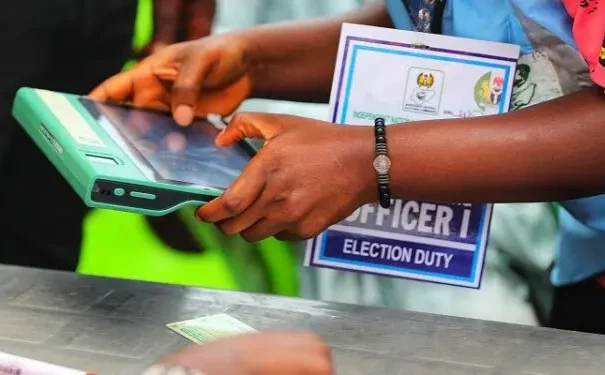The Independent National Electoral Commission (INEC) has explained how the Commission survived the Central Bank of Nigeria (CBN) currency swap and other challenges, including the glitch that affected its IReV portal during the 2023 general election.
The Commission also insisted that the outcome of the 2023 general election reflected the wishes of the people, adding that the election was the most well-planned so far in terms of the production of the strategic plan of action, the guidelines and regulations for the election as well as the Election Project Plan (EPP).
This was contained in the Report of the 2023 General Election released by INEC on Friday.
The Commission listed one of the major challenges it faced during the poll as the currency swap by the Central Bank of Nigeria.
Recall that on October 26, 2022, the then Governor of the CBN announced the redesign of the highest denominations of the Naira and gave a deadline of 100 days to January 31, 2023, for the deposit of the old notes in exchange for the new ones.
The report reads, “For the Commission, the situation was quite serious since emergency situations do arise during elections requiring cash payment from the Commission. There are also some critical transactions, especially payments to transport providers and certain categories of ad-hoc staff, that the Commission can only pay either partly or fully in cash.
“Furthermore, the limit placed on cash withdrawals from the bank constituted an encumbrance on the ability of the transport providers to service and fuel their vehicles for election duty. To mitigate this grave
situation, the INEC Chairman met with the Governor of the Central Bank of Nigeria on February 7, 2023 to express concern about the Naira swap policy and how it might affect the general election. Given the criticality of the situation, the Central Bank made necessary arrangements to provide the Commission with some cash for the election.”
According to INEC, for the first time in Nigeria’s democratic history, candidates from over seven political parties won elections into various elective positions, thus breaking the two-party mould since the Second Republic.
“The 2023 general election was the first to be conducted as scheduled since 2011. For obvious reasons, the 2011 and 2019 General Elections were rescheduled. However, due to litigation on the process of the 2023 Presidential & National Assembly Election (Delay in the Re-configuration of the BVAS), the Governorship & State Houses of Assembly Election were rescheduled for 2 weeks.
“Thus, INEC’s commitment to electoral integrity and efficiency has led to a significant reduction in election postponements since 2011. This achievement underscores INEC’s dedication to upholding democratic norms and enhancing public trust in Nigeria’s electoral system,” the report noted.
The Commission reports that the introduction of a new legal framework and laws (Electoral Act 2022 and other constitutive instruments) have affected the elections positively as these enabled the Commission and other relevant stakeholders to plan adequately.
On the role of technology during the polls, the report stated that INEC’s adoption of advanced technology has revolutionised electoral operations.
It explained that direct Transitioning from Direct Data Capture (DDC) machines to INEC Voter Enrolment Devices (IVED) for online pre and in-person registration and upgrading from Smart Card Readers (SCR) to the Bimodal Voter Accreditation System (BVAS) demonstrated the Commission’s commitment to efficiency and accuracy.
It noted that these technological advancements optimise voter registration, authentication, and accreditation processes, ensuring credible and transparent elections.
It reads, “Also the introduction of technology signifies INEC’s commitment to innovation and modernisation. By leveraging technology, INEC seeks to set new standards for credible and inclusive elections in Nigeria.
“In addition, the following technological innovations were introduced by the Commission to the process: INEC Results Viewing Portal (IReV): which enables citizens view scanned polling unit results in real time was first deployed at the Nasarawa Central State Constituency By-election held 8th August, 2020; subsequently, it has been used in all elections to date; INEC Media Accreditation Portal (IMAP); Candidate Nomination Portal; Party Agent Nomination Portal; Election Observer Group Portal; and INECPres Portal”

